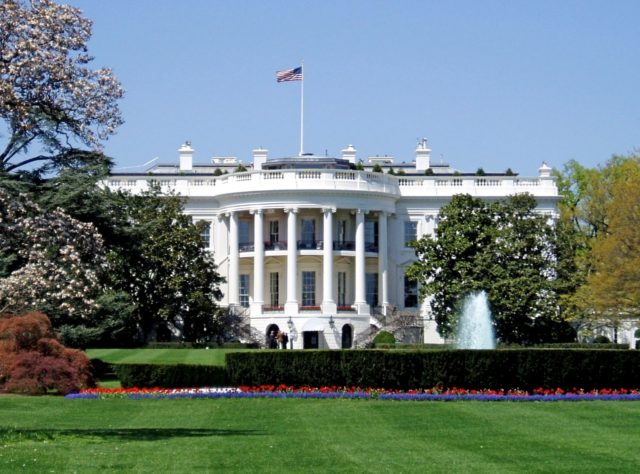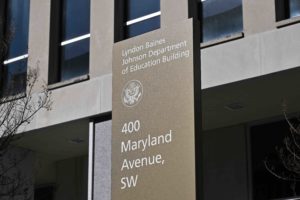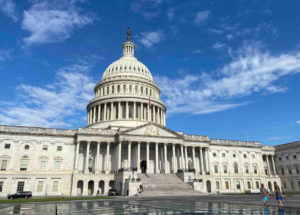The Trump administration announced the dismantling of one of the world’s largest international development aid agencies.
After President Donald Trump signed an executive order hours after his inauguration that froze nearly all foreign aid, Elon Musk, who leads the Department of Government Efficiency, announced the administration’s intention of shutting down the United States Agency for International Development. The move would force 10,000 government employees out of work, according to NPR, and has prompted a wave of lawsuits and judicial decisions seeking to block the order.
Kal Raustiala, the director of the UCLA Burkle Center for International Relations, said the implications of shutting down USAID and removing funding for widespread humanitarian initiatives would create “huge” impacts on countries that rely on American aid.
Though components of USAID could be integrated into other federal agencies, Raustiala added that many initiatives – such as public health programs that combat the spread of diseases like malaria and HIV overseas – are at risk of being defunded or destroyed.
The U.S. is currently the world’s largest provider of foreign aid, with USAID handling more than half of these funds, said Raustiala, the distinguished professor of comparative and international law at UCLA School of Law’s Promise Institute.
Without this funding, countries reliant on this aid would be left floundering and the U.S. could face repercussions in terms of its global influence, he said.
“Those countries are very grateful for the support, but also this is support that’s desperately needed,” Raustiala said. “If you take it away, they’re going to try to find ways to fill it, and one obvious implication of this is that other countries might fill that void. And those countries might, for example, be China or countries that we have an adversarial or competitive relationship with.”
Alexandra Lieben, deputy director of the UCLA Burkle Center for International Relations, said the decision to shut down USAID could also undermine the positive relations the U.S. currently has with nations receiving aid.
Lieben added that dismantling USAID could have direct impacts on the public health of the U.S. itself. The agency has worked to combat the Ebola outbreak in Uganda and the Marburg virus in Tanzania, which helps prevent those viruses from reaching the U.S., she said.
“USAID funding helps those nations screen passengers before they get on a plane and leave those countries, meaning it helps contain the virus within national borders,” Lieben said. “It’s not just that we are helping developing nations who are in crisis, but we are helping keep America safe.”
USAID also helps nations deal with the consequences of climate change and assists those affected by natural disasters, by helping them rebuild and take preventative measures, Lieben said. Without this aid, the number of migrants looking to seek refuge in the U.S. would increase – a situation at odds with the current administration’s outlook on accepting refugees, she added.
Lieben said she believes the Trump administration made the decision to dismantle a major aid agency without considering many of the international and domestic implications that would come from it.
Whether that be American farmers losing contracts with USAID to provide food assistance overseas or anti-terrorism measures in other nations losing their USAID funds, Lieben said the Trump administration has not yet anticipated the full extent of this decision’s consequences.
“They’re not thinking through what they’re doing, because they don’t take the time to understand how complex it is,” Lieben added. “They’re firing people who have the knowledge, the institutional wisdom, so it is going to backfire. We just need to wait and see when.”
Hannah Appel, the associate faculty director of the UCLA Luskin Institute on Inequality and Democracy, said the decision is also an indicator of the Trump administration’s domestic strategy. Since Americans overwhelmingly disapprove of spending money on humanitarian foreign aid, Trump has made the decision to target USAID, Appel said.
“What Trump is doing is trying to buoy his approval ratings on issues that he knows are very popular with much more than a majority of the American electorate,” Appel said. “They’re doing things that a lot of their base finds very appealing to try to ride on the momentum of the initial win.”
A federal judge ordered the Trump administration to temporarily pause the freeze Thursday, marking the first ruling to challenge the administration’s foreign aid cuts.
However, Appel said there are still questions as to whether the administration will comply with the incoming judicial orders and whether these cases will eventually make their way to the Supreme Court.
“The orientation I would counsel to students and really everybody is, ‘Remain vigilant. Remain informed,’” Appel said. “But also remain curious – What is going to happen? What are the courts going to say, and what is the administration’s response going to be? There’s a lot of unknowns right now.”





Comments are closed.